Hand Exercises
Medically reviewed by Karen Murray, OT, CHT, CSRS - written by Stroke-rehab.com
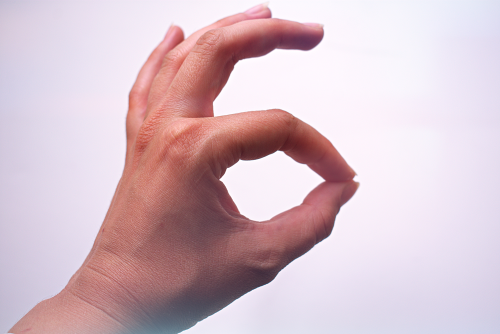
|
Hand function and fine motor skills are often impaired after having a stroke. Hand exercises are beneficial in improving strength and dexterity regardless of whether the stroke patient is just beginning to get hand movement or already has good hand range of motion. |
Page Table of Contents |
The exercises below are ones that may be used by OTs and hand therapists to improve fine motor skills that have deteriorated after a stroke. Note that some activities may be too easy or too hard depending on the extent of one's impairment. If the stroke patient has no hand movement, see the paragraph at the end of this page to see other treatment options that are often used.
Hand Activities for Coordination
 |
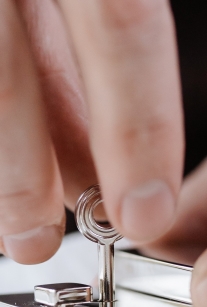 |
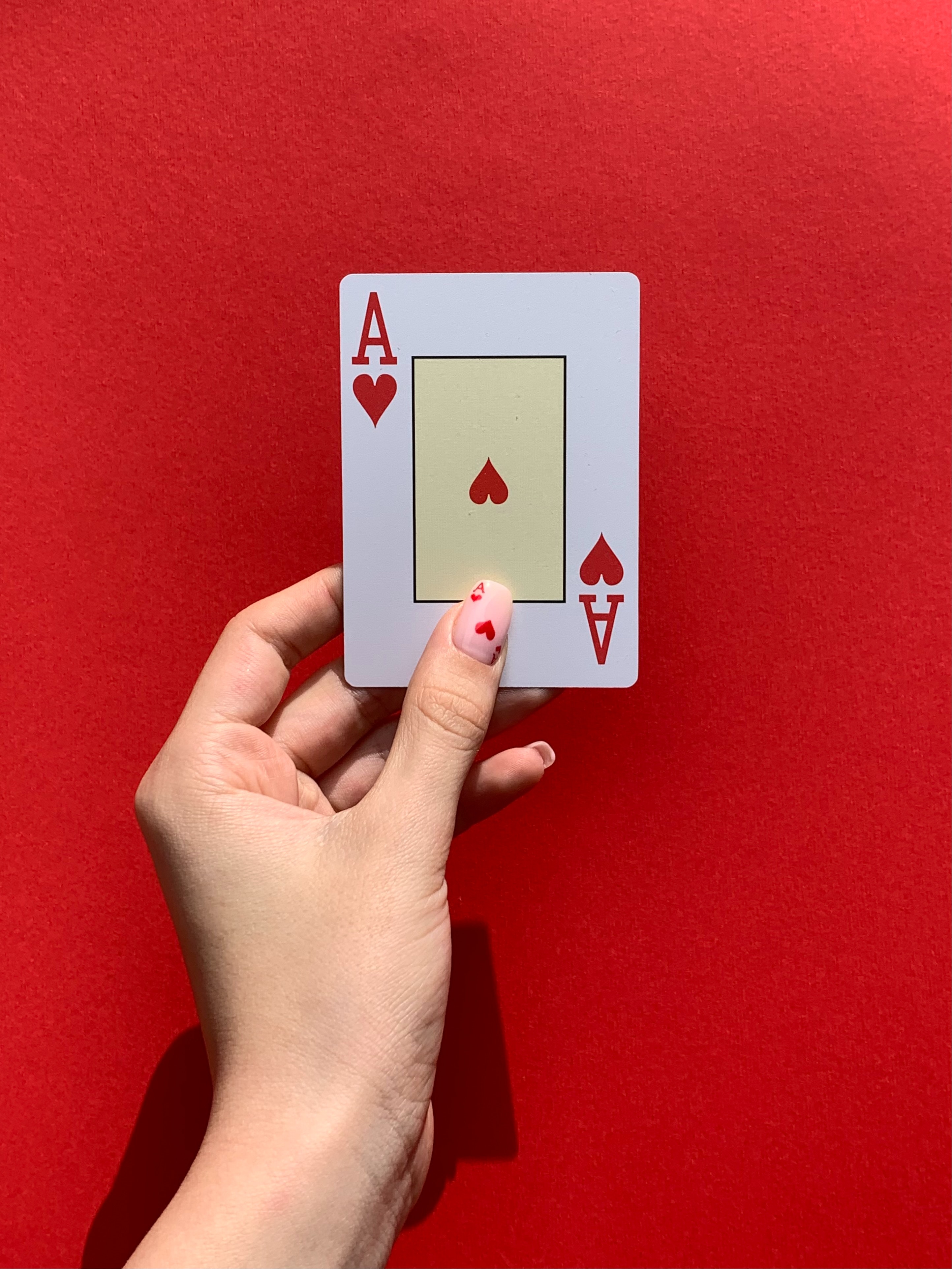 |
|
Put pennies in a container or stack them. |
Put together nuts and bolts or turn screws |
Turn Cards Over |
 |
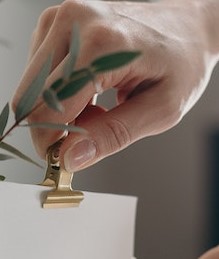 |
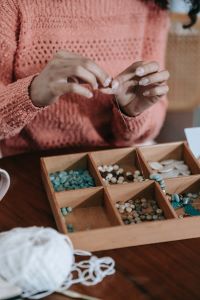 |
|
Play the piano or keyboard |
Pinch clothespins, chip clips or binder clips. |
String Beads |
 |
 |
 |
|
Put together puzzles |
Play chess or checkers |
Practice writing or printing exercises |
Other Hand Exercises
Practice typing or writing.
Pick up small objects like buttons, screws, washers, coins, etc.
Crumple a sheet of paper into a ball. Try to spread it back out into a flat piece of paper using only the affected hand.
Pick up empty cans and then put them back down.
Roll a pencil between the thumb and fingers.
Place your hand on the table, and try to lift each finger one at a time off of the table as in the video below:
Practice buttoning.
Pick up toothpicks with tweezers.
Wring out washcloths.
Fill a bowl with rice and place objects in the rice. Try to find the objects with your hand without looking.
Paint.
Try some of the fine motor apps available for smart phones and tablets. Some apps that work on fine motor skills include Dexteria, Magic Tiles 3, Magic Piano, Finger Run, and Fruit Ninja to name a few.
Plant seeds.
Perform theraputty exercises. See video below for some examples of putty exercises.
Pick up small objects (e.g. marbles or checkers) one at a time transferring each one to the palm of your hand and holding onto it as you pick up the next object. Then without letting objects fall out of the hand, place each object back down one at a time (See in hand manipulation skills section below).
In Hand Manipulation Skills
In hand manipulation skills refer to the ability to manipulate objects within the hand and include the skills of translation, rotation, and shift. Translation involves moving objects from the fingertips to palm and from the palm to fingertips. Rotation is the ability to rotate objects with the fingers, and shift is the ability to move objects with the fingers linearly. Below is a video that demonstrates the various in hand manipulation techniques. One can practice these exercises to help improve fine motor coordination and the ability to manipulate a pen for writing.
Fun and Unique Hand Exercises
Are you looking for fine motor exercises that might be a little more fun or involve more intricate movement? Then try some of these:
Fruit and Vegetable Carving: Start with softer fruits like bananas and cucumbers and gradually progress to more intricate designs using carrots and radishes. This activity challenges fine motor control and fosters creativity. (This is only appropriate if cognition and protective sensation are intact)
Thread Art: Set up a large corkboard or canvas and use colored threads or yarn to create intricate designs. You can wrap the threads around pins or hooks to form beautiful thread art.
Calligraphy and Hand Lettering: Try calligraphy or hand lettering. Use various pens and markers and try different writing styles.
Seed Bead Mosaics: Provide a variety of small seed beads and a base material like sturdy cardboard or foam. They can create colorful mosaics by gluing the beads onto the base, which requires precise finger movements and attention to detail.
Recycled Material Sculptures: Create sculptures using recycled materials like paper rolls, bottle caps, and cardboard pieces. Assembling these materials requires fine motor skills and provides an outlet for artistic expression.
Rubber Band String Art: Set up a pegboard and stretch and hook rubber bands between pegs to create geometric designs or pictures. This activity enhances finger strength and coordination.
Digital 3D Modeling: If you are comfortable with a computer, try digital 3D modeling software. You can create virtual sculptures and designs, which involves precise mouse or stylus control.
Hole Punch Art: Use construction paper and a hole punch to craft different shapes and artwork.
The Paralyzed Hand
If one is unable to move the hand or fingers, then exercises typically focus on stretches to the hand and using the other hand to move the fingers of the paralyzed hand. The affected hand may be placed on an object such as a table or ball with the fingers open, trying to keep it there without the hand falling off or fingers curling up.
Finger and wrist movement may be elicited by tapping the muscles in the forearm. Tapping the back of the forearm will help facilitate straightening of the fingers and wrist. Tapping the other side of the forearm will elicit finger and wrist flexion (or bending). With the help of a therapist, one can also try equipment designed to help improve hand function such as the Motus Hand. Ask your therapist if these treatments would be appropriate for you.
Hand Rehab Equipment Available Online
As an Amazon Associate I earn from qualifying purchases.
Get Our Stroke Rehab Guide

Our comprehensive stroke rehab guide in pdf format is designed for both patients and caregivers who want clear, practical ways to support recovery, improve daily function, and regain independence at home. It includes
- Rehab exercises with pictures for safe home practice
- Physical, occupational, and speech therapy guidance
- Tips for daily activities and adaptive equipment
- Answers to common questions from patient and caregivers
- Information on stroke causes, treatment, and prevention
A single therapy visit can run $150 or more. The Stroke Rehab Guide is only $14.99, and includes a pdf guide you can continue to refer to in the future with exercises and information on stroke recovery. In addition, any time an update or new version of the guide is written, you will get the updated version for free.

About the Author
Karen Murray, OTR, CHT, CSRS, is a licensed occupational therapist, Certified Stroke Rehabilitation Specialist, Certified Hand Therapist, and Certified Personal Trainer with over 29 years of experience working with stroke survivors in hospital, outpatient, and home settings. She founded Stroke-Rehab.com to help patients and caregivers better understand stroke recovery, find evidence-based resources, and regain independence at home.
Medical Disclaimer: All information on this website is for informational purposes only. This website does not provide medical advice or treatment. Always seek the advice of your physician or other healthcare provider before undertaking a new healthcare or exercise regimen. Never disregard professional medical advice or delay seeking medical treatment because of something you have read on this website. See the disclaimer page for full information.



















